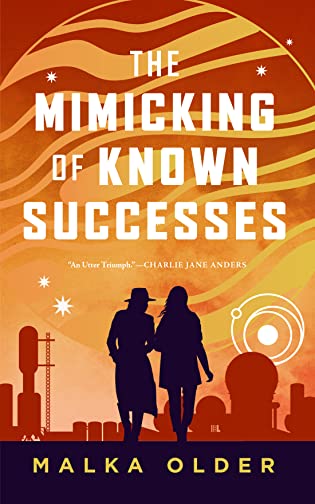 The Mimicking of Known Successes (Investigations of Mossa & Pleiti, #1) by Malka Older
The Mimicking of Known Successes (Investigations of Mossa & Pleiti, #1) by Malka Older Format: eARC
Source: supplied by publisher via Edelweiss
Formats available: hardcover, ebook, audiobook
Genres: climate fiction, mystery, science fiction, space opera, steampunk
Series: Investigations of Mossa & Pleiti #1
Pages: 176
Published by Tordotcom on March 7, 2023
Purchasing Info: Author's Website, Publisher's Website, Amazon, Barnes & Noble, Kobo, Bookshop.org, Better World Books
Goodreads
The Mimicking of Known Successes presents a cozy Holmesian murder mystery and sapphic romance, set on Jupiter, by Malka Older, author of the critically-acclaimed Centenal Cycle.
On a remote, gas-wreathed outpost of a human colony on Jupiter, a man goes missing. The enigmatic Investigator Mossa follows his trail to Valdegeld, home to the colony’s erudite university—and Mossa’s former girlfriend, a scholar of Earth’s pre-collapse ecosystems.
Pleiti has dedicated her research and her career to aiding the larger effort towards a possible return to Earth. When Mossa unexpectedly arrives and requests Pleiti’s assistance in her latest investigation, the two of them embark on a twisting path in which the future of life on Earth is at stake—and, perhaps, their futures, together.
My Review:
The Mimicking of Known Successes throws steampunk, mystery, climate fiction and planetary colonization into a blender with a soupcon of dark academia, a scintilla of romance and just a pinch of Sherlock Holmes pastiche to create a delightful story that leans hard on its central mystery and the push-pull relationship of its puzzle-solving protagonists.
It’s also a wonderful antidote to the recent spate of darkly corrupt academia. Or at least provides a much needed light at the end of some recent deeply dark tunnels in that genre. (I’m looking at Babel and both The Atlas Six and yesterday’s book, The Atlas Paradox.)
That light is in the characters, Investigator Mossa and her once and likely future lover, Scholar Pleiti. Neither of whom can resist a mystery. Or, as before and now again, each other.
The mystery begins, not with a dead body as such stories usually do, but with a missing one. It’s assumed that Scholar Bolien Trewl jumped, or was pushed off the platform at the last station on the end of the line around the gas giant moon these refugees from Earth have settled upon.
There is literally nothing else to do at that station except wait for the next train back inward, visit the four buildings on the platform, or drop off into the gas-wreathed planet below. The missing scholar isn’t still around, he didn’t board the next inbound train, so that leaves suicide or murder by plummet.
But that conclusion doesn’t make sense to Inspector Mossa. The pieces don’t add up. But those same pieces definitely lead her into temptation. The missing man was a Scholar at Valdegeld University, as is Mossa’s former flame Pleiti. Who might be of assistance in this investigation. Or the coincidence may just be an excuse to find out if the flame still burns.
As it turns out, more than a bit of both. And the game is most definitely afoot.
Escape Rating A+: This was a re-read for me. I reviewed The Mimicking of Known Successes last year for Library Journal, but I loved it so much that I kept referring to it in other reviews that I couldn’t resist giving a much longer review here.
So here we are.
At first, it was the setting that grabbed me. Mossa’s trip to that very remote station gives the reader a terrific introduction into the way this world both works and doesn’t, along with a taste of the marvelously steampunk-y nature of the whole thing.
Trains, the trains are so delightfully retro, while the planetary location is anything but. It’s not exactly a surprise that in this future view of the solar system, Earth is a painful and pined for reminder that humanity totally screwed the pooch of their home planet. Humanity is in exile, and seems caught between those who have settled down to make the most of their new home and those who are working towards a return.
That the divide reflects the town vs. gown contention that marks many college towns is just an added fillip to the whole. It’s the University that is devoted to a return, even as they spawn committees and arguments and delays and endless studies focused on the optimal way to go about it.
A process that the victim seems to have been at the heart of. As is Pleiti.
While the setting is fascinating and new, the details of academia that resemble the reader’s present provide a grounding (so to speak) a point of reference and congruence, and a whole lot of dry wit, particularly from Pleiti’s insider perspective.
As the story is told from Pleiti’s first-person perspective, we’re inside her head as she observes just how much her own profession obfuscates the important things and sweats the small stuff all the damn time.
Which lets the reader understand why Pleiti has let herself be drawn into Mossa’s investigation. It’s not just the rekindling of an old flame, it’s the need to work on something that has concrete and immediate effects that can’t be reduced to a footnote.
Even though Mossa and Pleiti nearly are reduced, not so much to a footnote as to a smear of grease on a cracked launchpad as the conspiracy and the mystery reach their explosive conclusion.
I initially picked this one up for its SF mystery blend, a combination that is having a marvelous moment right now. (If you want more of this combo, I highly recommend Station Eternity by Mur Lafferty, The Spare Man by Mary Robinette Kowal and Drunk on All Your Strange New Words by Eddie Robson along with John Scalzi’s Lock In.)
What grabbed me and kept me sucked in, TWICE, was the introduction to this quirky colony and its Sherlock and Watson investigative duo as they pursued the mystery to its surprising end. What kept me smiling and even chuckling all along the way were Pleiti’s wry observations of the familiar world of academe wrapped inside an utterly fascinating but not nearly so familiar setting.
When I first read The Mimicking of Known Successes last fall, it seemed to be a standalone book and I was a bit sad about that because I loved the characters and their world and the way they work together in it. So I was really pleased to discover that Mossa and Pleiti will return in February, 2024 in The Imposition of Unnecessary Obstacles. I’m looking forward to finding out what that title will mean for their relationship and their necessary investigations.

 Firebreak by
Firebreak by 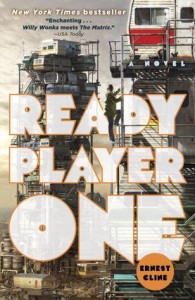 Escape Rating A+: It’s not about the game. It’s about the world that the game lets everyone escape from while packaging and selling the war – and every control and draconian measure that goes along with it – to everyone at the same time.
Escape Rating A+: It’s not about the game. It’s about the world that the game lets everyone escape from while packaging and selling the war – and every control and draconian measure that goes along with it – to everyone at the same time. The way that Firebreak DOES link to
The way that Firebreak DOES link to  The Weight of Command by
The Weight of Command by 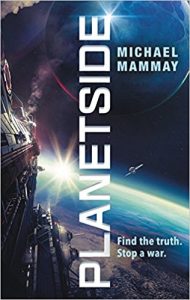 Escape Rating A: This is not exactly the first time this scenario has been done. (There are at least SIX different variations of it in the
Escape Rating A: This is not exactly the first time this scenario has been done. (There are at least SIX different variations of it in the 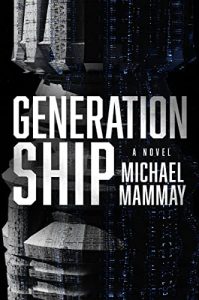 I picked up The Weight of Command because I adored the author’s previous work, especially his
I picked up The Weight of Command because I adored the author’s previous work, especially his  World Running Down by
World Running Down by 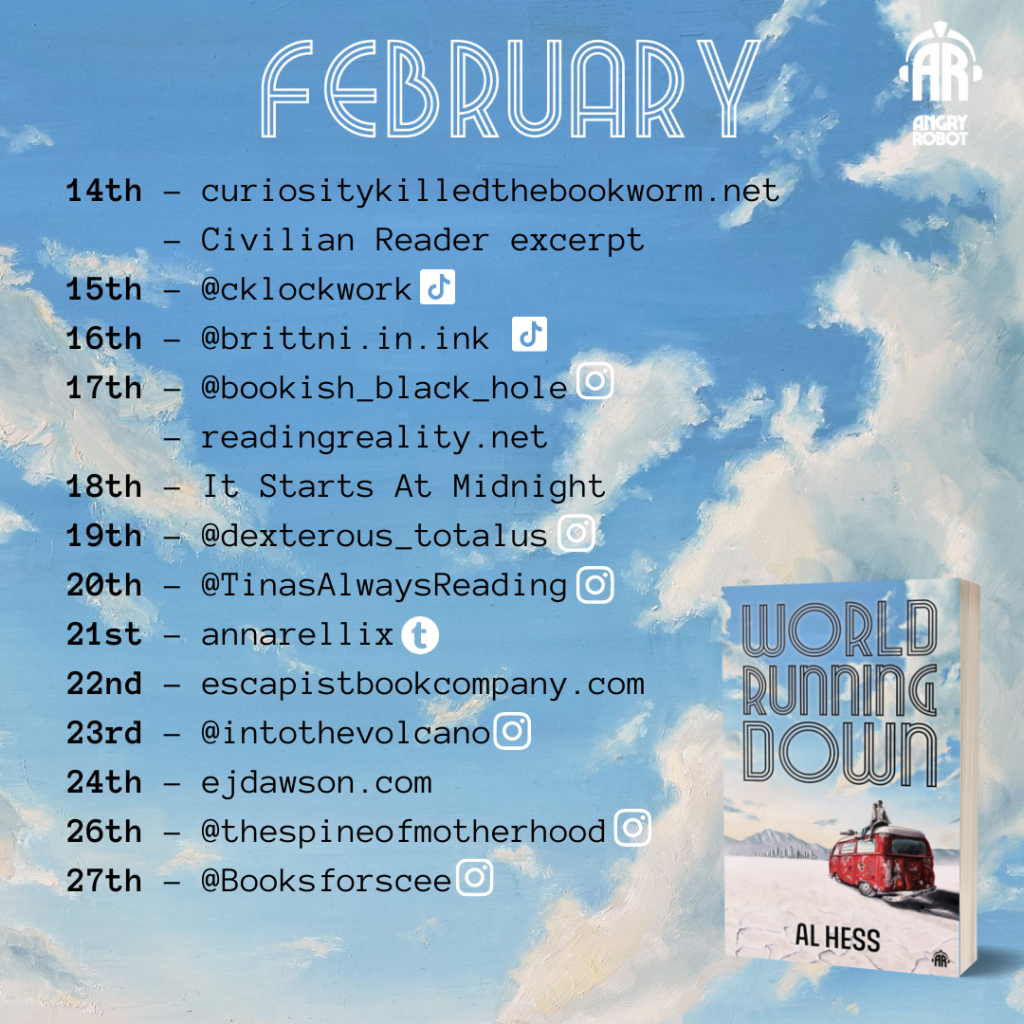 FEBRUARY
FEBRUARY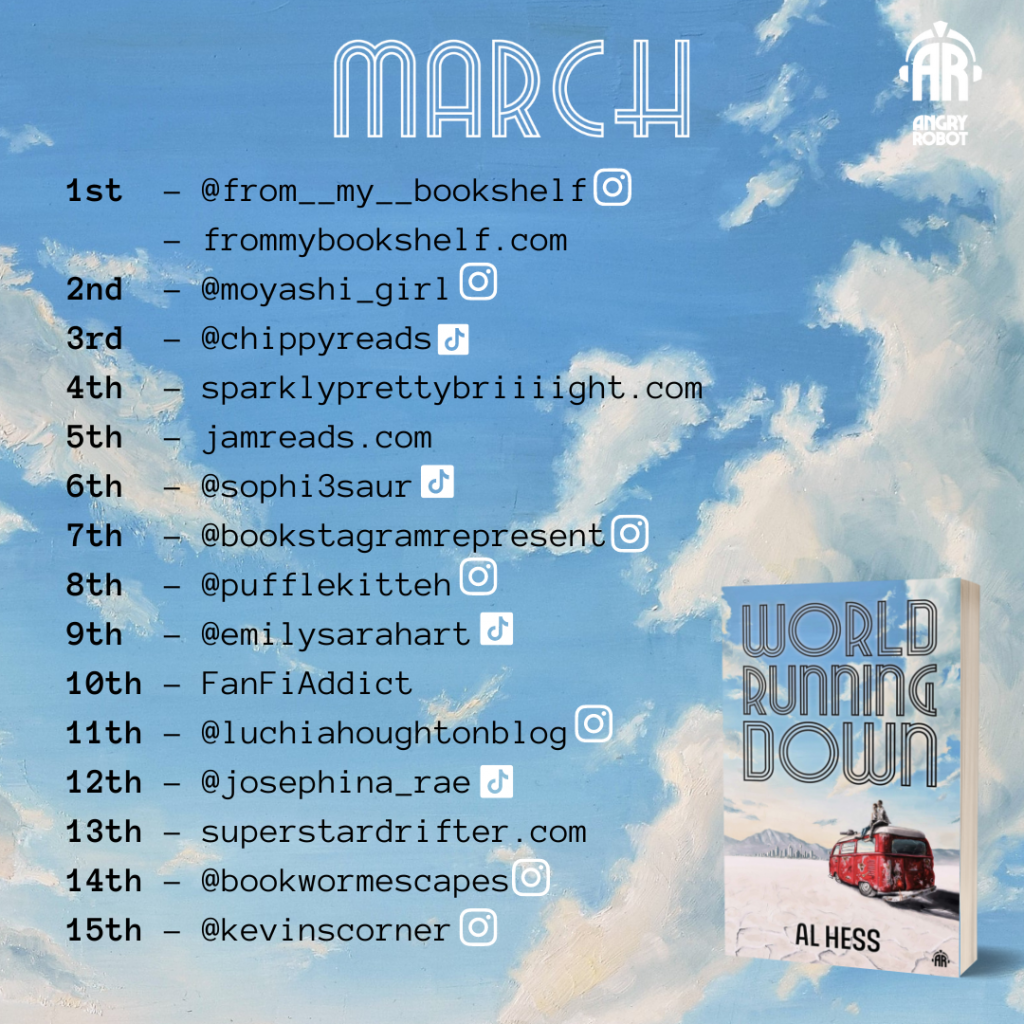 MARCH
MARCH Never Too Old to Save the World: A Midlife Calling Anthology by
Never Too Old to Save the World: A Midlife Calling Anthology by  My favorite fantasy story is “Jackalope Wives” by Ursula Vernon – who also writes marvelously fantastic fantasy and horror as T. Kingfisher. “Jackalope Wives” is the only story in the book that has been previously published, originally in
My favorite fantasy story is “Jackalope Wives” by Ursula Vernon – who also writes marvelously fantastic fantasy and horror as T. Kingfisher. “Jackalope Wives” is the only story in the book that has been previously published, originally in 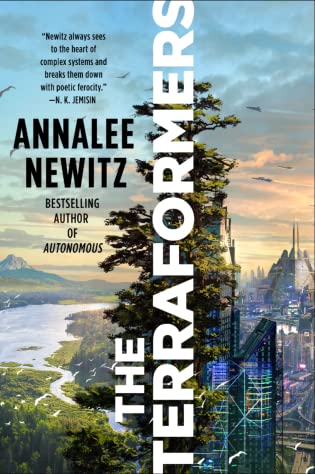 The Terraformers by
The Terraformers by  Sea of Tranquility by
Sea of Tranquility by  Escape Rating B: If
Escape Rating B: If  One final note, some of the time travel aspects did give me warm fuzzies of Jack Finney’s time travel classic,
One final note, some of the time travel aspects did give me warm fuzzies of Jack Finney’s time travel classic, 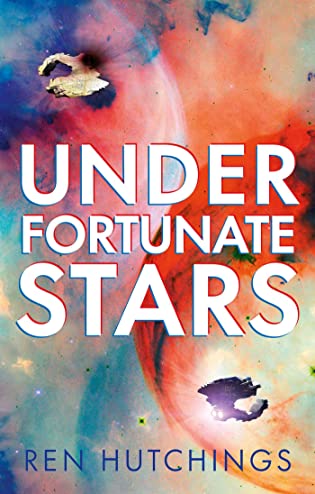 Under Fortunate Stars by
Under Fortunate Stars by 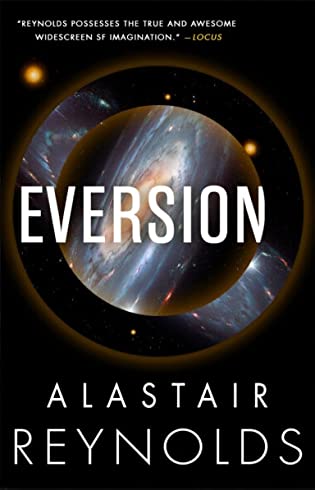 Eversion by
Eversion by  Escape Rating A: The author of Eversion is best known for his epic, space opera type science fiction, but if that’s what you’re looking for you’re not going to find it in Eversion. Very much on the other hand, if you enjoyed the small-scale, small-cast, intimate story of his
Escape Rating A: The author of Eversion is best known for his epic, space opera type science fiction, but if that’s what you’re looking for you’re not going to find it in Eversion. Very much on the other hand, if you enjoyed the small-scale, small-cast, intimate story of his  Sweep of the Heart (Innkeeper Chronicles, #6) by
Sweep of the Heart (Innkeeper Chronicles, #6) by  Dina Demille is not exactly a typical innkeeper, and Gertrude Hunt is far from an ordinary inn of any stripe whatsoever. And that’s not just because Dina’s lover, partner and fellow innkeeper, Sean Evans, is an alpha strain werewolf.
Dina Demille is not exactly a typical innkeeper, and Gertrude Hunt is far from an ordinary inn of any stripe whatsoever. And that’s not just because Dina’s lover, partner and fellow innkeeper, Sean Evans, is an alpha strain werewolf. Escape Rating A:
Escape Rating A:  I think that a lot of readers will enjoy the intergalactic Bachelor game even if they are new to the series, but that overarching plot forms the beginning AND the end and may keep those readers from getting to what they would consider the juicy middle. On the other hand, series readers are going to eat the whole thing up with a spoon. Or at least this reader did.
I think that a lot of readers will enjoy the intergalactic Bachelor game even if they are new to the series, but that overarching plot forms the beginning AND the end and may keep those readers from getting to what they would consider the juicy middle. On the other hand, series readers are going to eat the whole thing up with a spoon. Or at least this reader did.